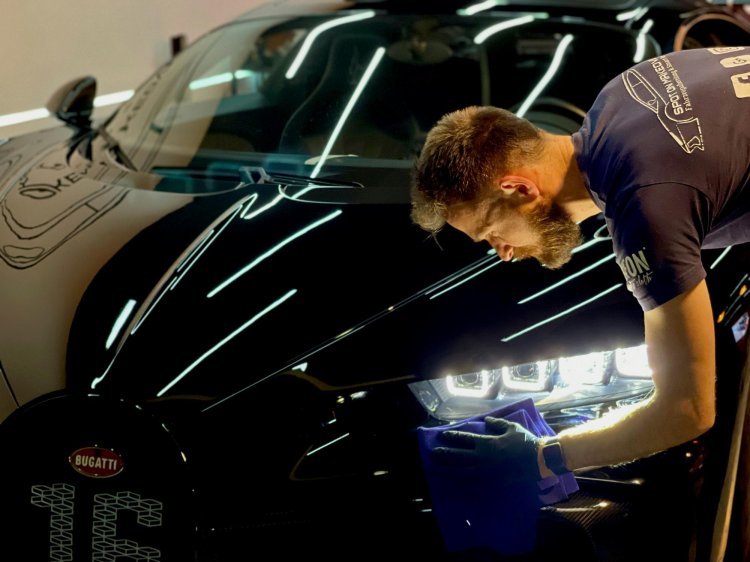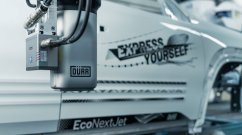Ceramic coating has gained popularity among car enthusiasts for its promise of long-lasting protection and a brilliant, glossy finish. But is it the right choice for your vehicle? Let’s see 5 pros and 5 cons of ceramic coating to help you decide.
Pros
1. Enhanced Protection
Ceramic coatings provide a strong protective layer over your car’s paint. This layer shields the paint from harmful UV rays, reducing oxidation and preventing the paint from fading. It also offers resistance against chemical stains from acidic contaminants, bird droppings, and tree sap, which can etch into and damage the paintwork.
2. Hydrophobic Properties
One of the most talked-about benefits of ceramic coatings is their hydrophobic nature. This means water and other liquids bead up and roll off the surface, taking dirt and grime with them. This property not only makes the car easier to clean but also helps maintain its glossy appearance for longer periods.
3. Glossy Finish
Ceramic coatings can significantly enhance the appearance of your car. The coating adds depth and clarity to the paint, resulting in a high-gloss finish that’s often compared to a mirror-like shine. This can make even older cars look rejuvenated and well-maintained.
4. Longevity
Unlike traditional waxes and sealants that wear off after a few months, ceramic coatings are designed to last for years. A well-applied ceramic coating can last anywhere from one to five years, depending on the product and maintenance, providing long-term protection and reducing the frequency of reapplication.
5. Scratch Resistance
While ceramic coatings are not entirely scratch-proof, they do offer a degree of scratch resistance. The hard layer created by the coating can help reduce the risk of minor scratches and swirl marks from regular washing and drying.
Cons
1. Cost
One of the biggest drawbacks of ceramic coating is the cost. Professional application can be quite expensive, often ranging from several hundred to over a thousand dollars. While there are DIY options available at a lower cost, they may not provide the same level of protection or finish as a professional job.
2. Labor-Intensive Application
Applying a ceramic coating is a meticulous process that requires thorough preparation. The car’s surface must be perfectly clean and free of any imperfections before application. This often involves multiple steps, including washing, claying, polishing, and applying the coating. For best results, it’s recommended to have it done by a ceramic coating professional, adding to the overall cost.
3. Potential for Imperfections
If not applied correctly, ceramic coatings can result in high spots, streaks, or haze on the paint. These imperfections can be difficult to remove and may require professional correction. DIY enthusiasts need to follow instructions carefully and work in controlled environments to avoid such issues.
4. Maintenance Requirements
While ceramic coatings reduce the need for frequent waxing, they are not maintenance-free. Regular washing with proper techniques and products is still necessary to keep the coating effective and looking its best. Harsh chemicals and abrasive cleaning methods can degrade the coating over time.
5. Not a Solution for All Damages
Ceramic coatings do not protect against all types of damage. They won’t prevent rock chips, dents, or major scratches. It’s essential to have realistic expectations and understand that while ceramic coatings provide excellent protection, they are not a cure-all for every potential issue your car might face.
Conclusion
Ceramic coating offers a range of benefits, from enhanced protection and a glossy finish to long-lasting durability. However, the cost and the labor-intensive application process can be significant downsides. For car owners looking for a balance between aesthetic appeal and protection, ceramic coatings can be a worthwhile investment. However, it's crucial to weigh the pros and cons and consider professional application to maximize the benefits.













